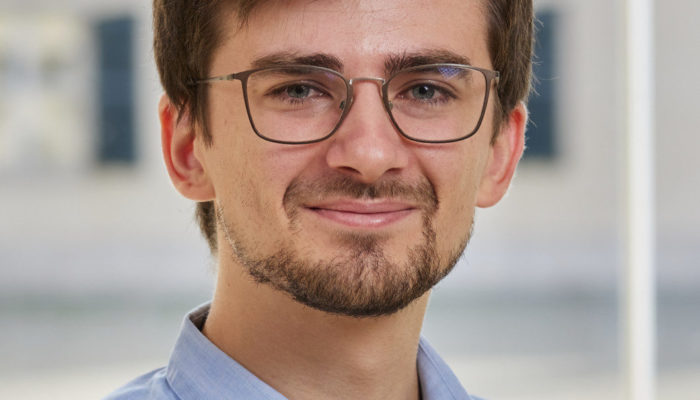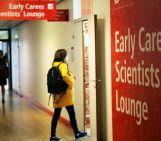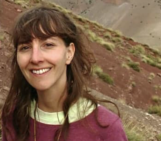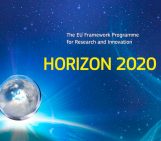
Hello Jarmo. Thank you for joining us for the interview today! Before we put our foot on the gas, could you tell us a little bit about yourself and your research?
Hi Simon, nice to meet you! Thanks for inviting me to chat with you about my research, and perhaps a bit about the person behind this research – it’s an honour! The basics; I was born in the Netherlands and lived in South Korea, the UK, and Austria. I love cycling – most of the days for commuting, but when I get lucky I cycle up some mountain and enjoy the sports, views, and perhaps even a swim in a lake afterwards!
The first thing I generally tell others about both my background and my research is that it is very interdisciplinary. The word interdisciplinary gets thrown around a lot, so let me explain a bit about what I mean with it. I did my bachelor’s degree in “Technology, Liberal Arts, and Sciences” at the University of Twente in the Netherlands. This course aimed to provide the hard and soft skills for ‘engineers of the future’ – a fancy way to say that we developed a good foundation in mathematics, physics, and some of the social sciences (including psychology), while also doing a lot of group project work. It however also allowed for choosing some personal courses (I did for instance environmental policy, computational fluid dynamics, and cognitive neuroscience, just to give you an idea), with my relative expertise being in physics, politics and policymaking.
I realized my main interest was the study of important global issues, where social and natural sciences (or technology) intersect. Finding a master’s degree, and later a PhD project that fit this profile was not entirely straightforward, but I managed in the end! During my master’s degree (called “Climate Change”) at University College London, I figured out what field of research I wanted to work in, a field called ‘integrated assessment modelling’. I started working as a junior researcher at the International Institute of Applied Systems Analysis (IIASA) in Austria, and began my PhD at Imperial College London a year later.
My research covers climate mitigation, energy, the economy, and inequality. More specifically, within my PhD project I aim to bring the consideration of poverty eradication in its many forms a bit more central to the scenarios that inform climate change mitigation. In short, I would like to see more direct consideration of human development when discussing future scenarios that inform policymaking for climate policies.
Part of eradicating poverty means ensuring people have decent access to energy. However, meeting climate targets requires reducing emissions which will have repercussions for people’s energy usage. Is there a trade-off when trying to alleviate both poverty and climate change?
You’re absolutely right. Global poverty is an immense issue, with billions being deprived of many basic services. To provide these services, the energy use of such individuals and households should increase. The flip side of this coin is that the energy sector is the largest emitter of global greenhouse gas emissions.
However, it would in my view be a big mistake to simplify this to “poverty eradication leads to higher climate change”. This is only the case in what I would call “naïve climate mitigation scenarios” – scenarios that retain most elements of global and national inequality and do not consider holistic climate policies that address redistribution of income or services.
Actually, current global energy use is more than enough to meet energy requirements for a decent life for all! Our recent research shows that even under projections with very ambitious climate policies, there is plenty of energy generated to provide decent living standards, also for a growing population. This includes for instance minimum shelter, thermal comfort, healthcare, education, transportation, household appliances and nutrition.
In terms of energy production, too, greener does not any longer necessarily mean more expensive. The prices of solar panels, wind turbines, and batteries has come down dramatically, and the cost of electricity generation from solar PV is now in many places cheaper than electricity from coal or natural gas. Then there’s also the issue of fluctuations in fuel prices, which is really felt in Europe and the world right now, where fuel prices are at the moment mostly determined by market mechanisms and policies that are pegged to oil and gas.
The big question for me therefore is not “will climate mitigation lead to more poverty” but rather “what pathways exist to both eradicate poverty and meet ambitious climate goals”. To do this, on the climate side you clearly need to pull all levers, while trying to make sure that the climate policies are not implemented in a regressive fashion that would benefit the rich and harm the poor – for instance for a carbon price the effects of this have been studied extensively and there are multiple recycling or redistribution schemes to compensate negative impacts. On the poverty side, you need a redistribution within countries, and for poorer countries this needs to be combined with increased growth rates of service provisioning. To not increase the challenge of the energy transition while being serious about global human development, it is worthwhile to look at lowering aggregate resource (e.g. energy) of especially richer populations for services that didn’t contribute much to their well-being anyway, while poorer regions definitely need the investment to scale up their services.
The COVID-19 pandemic saw an unplanned, dramatic drop in emissions as people’s energy usage changed, to the degree that it provoked discussion on how climate change could be mitigated if such a shift was planned. Has COVID-19 changed how you see mitigation challenges for climate change?
The pandemic was clearly a disaster and so in itself it was not a pathway towards a sustainable future. However, there are lessons that we can learn from the changes in behaviour, structures, and related production that we saw during the pandemic and lockdowns. Many of the practices seen during lockdowns were forced upon populations and were only temporary. However, for the first time there was also a massive shift towards teleworking, which led to major changes in how energy is used for transportation and buildings.
In recent work, we looked into what the effect would be on the challenge of meeting a 1.5°C target after the pandemic. We know that this is a very ambitious target, and found that it is possible to reduce climate mitigation challenges by supporting working from home and teleconferencing to reduce flying and commuting, as well as for instance, repurposing underutilized office spaces. However, we have now seen activity and increased energy use, and with it, emissions bump back to pre-pandemic levels. This means that global society has missed an opportunity to reduce necessary investments to meet the Paris Agreement, potentially by about 9% or $1.8 trillion, which is multiple times larger than the US Inflation Reduction Act that just passed.
I don’t think COVID-19 has majorly changed how I see mitigation challenges. On the one hand, surely, I am obviously extremely disappointed that global emissions are still on the rise and opportunities are still being missed. On the other hand, if I speculate a bit (so take this with a grain of salt, please!), what the pandemic did perhaps manage to do is free up some imagination, and make it more clear – across countries – what the really crucial activities of our economies are, and which parts of the economy could shrink with less impact on people’s well-being or even with positive effects. In Europe, at least more local holidays, more active travel, working from home, and closing airports are not unthinkable any more – as we have seen it is possible for quite a lot of people.
You also engage with policy and decision-making processes. How important do you think it is for researchers to engage with policy?
While still being very much an early career researcher, I have been very lucky to have been involved in a few science-policy activities. My main activity was being a contributing author to the Climate Mitigation part of the IPCC Sixth Assessment Report. I was responsible for assessing the global temperature outcomes from all modelled scenarios that were available for the IPCC. Actually, a preprint describing that process is now available on EGUsphere to hopefully be published in Geoscientific Model Development (GMD) later. Recently, I also worked on a policy brief for UN DESA on “Eliminating multidimensional poverty by providing decent living standards for all”, and spoke on a panel of the Sustainable Energy for All Forum, which is a UN initiative.
As a citizen, I am convinced that it is good that scientists try to do their best to synthesise and explain the key insights from recent research to allow for the creation of well-informed, science-based policies. Journal articles generally focus on a very specific situation, while good policymaking should always try to be holistic. Moreover, journal articles can be difficult to read and are often misinterpreted. Even while it is my day job as a scientist, I often struggle to understand articles myself!
How much, and in what way you do this can be different for everyone. It can be in more formal roles, for instance by contributing to national or international policy briefs. Joining such efforts, especially as an early career researcher, is however not always straightforward. Often, people are asked to contribute to reports by people that they already know. From my experience, what you can do is try to make it clear to supervisors and colleagues where your interest lies, such that they think of you if they need an extra pair of hands. But, luck, the luck of knowing the right people can unfortunately be an important factor in determining whether or not you get involved with such bigger science-policy reports.
But there are of course more options. One would be to write explainers, for instance on Twitter, or blogs, or work together with websites like CarbonBrief. However, know your audience, as not all of these would be read by policymakers. If your goal is to make sure broader scientific insights are respected by policymakers, I would definitely recommend to work together with local activist groups, or simply join one (or more!) of them.
What is important in the above, and what I struggle with myself, is that you cannot do everything. There are always more ways that one can get active, more ways to support policymaking, and more interesting research topics to be studied. But, human beings also need a social life, and of course sleep! Still it is worthwhile to stop and think about what is important to you, what you’re good at and maybe even find fun to do, and what you think is needed for society, and try to organize your activities around that.
Finally, anything exciting in the future for yourself?
Pff, that question may be at least as complex as modelling the future of energy systems! But I am currently very interested in trying to understand what current global integrated model scenarios imply about poverty and justice more generally, and think it will be very exciting to see what we can learn about that. With the IPCC AR6 report finished, now I have more time to work on that and finish my PhD!




